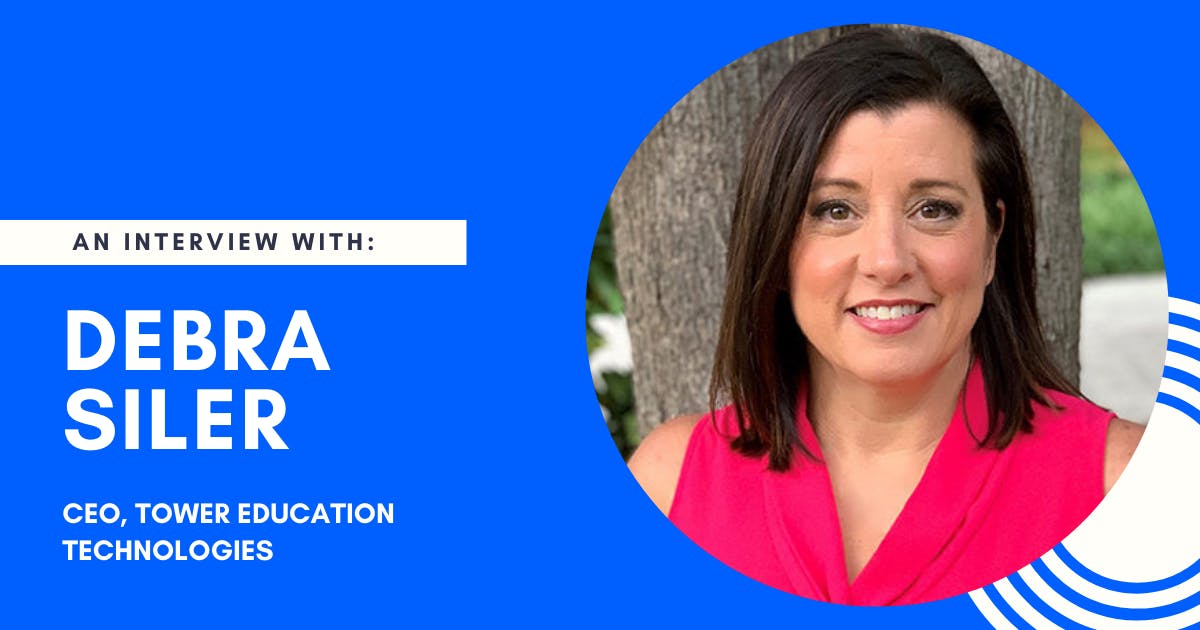To put it mildly, higher education institutions contend with many moving parts. With hundreds of faculty members, thousands of students, and many millions of dollars at stake, systems, and procedures can become complicated and confusing, sometimes dimming the experience for those involved. Enter Tower Education Technologies. Led by CEO Debra Siler, Tower aims to simplify the experience of higher ed by bringing together on one platform students, teachers, and administrators who can learn, research, communicate, and create with one another.
Here, we speak with Siler about why Tower’s product works, how it’s pivoted during the 2020 pandemic, and what some of the biggest challenges will be for higher ed in the next decade.
How would you describe Tower Education Technologies?
Our platform marries education with technology and brings together students, faculty, and administrators. The platform has the same look and feel across every touchpoint. Think about it like a dashboard where you seamlessly move between the priorities that are important to you. Students have course lists, assignment due dates, grades, and information around financial and academic standing. Faculty members are able to better teach and directly communicate with students through virtual classroom messaging, along with advanced co-creation capabilities that span the globe. And for administrators, they can prioritize not only their days but quarterly meetings, plans for the upcoming semester, and address budgets and staffing needs with actionable intelligence at their fingertips.
What do you mean by faculty co-creation?
One of our platform’s most exciting use cases is where two or more faculty members can collaborate and build something brand new together. For instance, we can pair a professor in Chicago with one in Portugal. They’re able to co-create a unique course that otherwise would have been impossible to merge. These members are matched based on similar interests, such as ethical business practices in a global economy. So what you’re doing is aggregating knowledge and encouraging people to share it across a variety of disciplines.
What is Tower’s priority now that so many of us are remote learning?
Since the pandemic, we refocused on faculty collaboration and online learning courses for students. How do you take a classroom experience online? What do faculty members need to succeed? How will students react? We asked ourselves all of those questions. But it presented an opportunity, too, because online education presents synchronous and asynchronous learning. People have different creative cycles, and information absorption comes at different times of the day. So with recorded lectures and providing information digitally, we’re actually seeing many students succeed in ways they may not have with in-person instruction only. In other words, online learning dials back the pressure on that hour and a half in the classroom and allows students to progress at a pace more suited for them.
How does your platform help faculty members?
Teaching online requires good soft skills, and we help improve that dynamic, giving them the tools they need to connect with students. Think of it like actors going from stage performances to the movies — there is no longer the audience to feed off of, learn from, and interact with. Our platform’s touchpoints help, in some cases, up the “fun factor,” and maintain engagement with sometimes a few hundred students.
What’s the biggest challenge for edtech in the next decade?
Having a single platform is going to be very convenient for institutions that now have to look closely at their ROI. So our goals are to improve the reporting of student data, along with measuring outcomes that result in metrics institutions can learn from that help guide future decisions. This will help track student retention, faculty engagement, and administration objectives. When all three come together, you have the possibility of a really powerful virtualized learning experience.
Stream’s Takeaway: A single repository that serves multiple purposes and can be tailored to individuals will help higher ed institutions organize and plan for a future that promises to look considerably different from years’ past.
Interested in learning how top edtech companies are evolving to serve the diverse needs of all education stakeholders? Download Stream's free ebook, Edtech Today: 8 Startups on Managing Exponential Growth.

